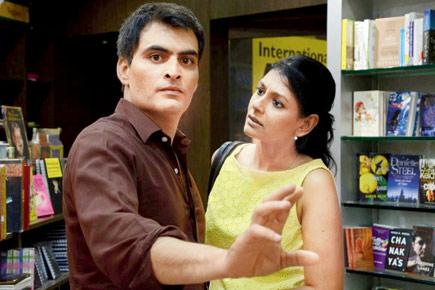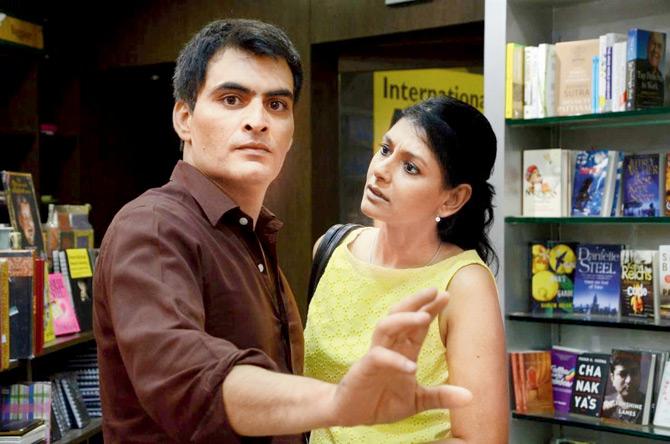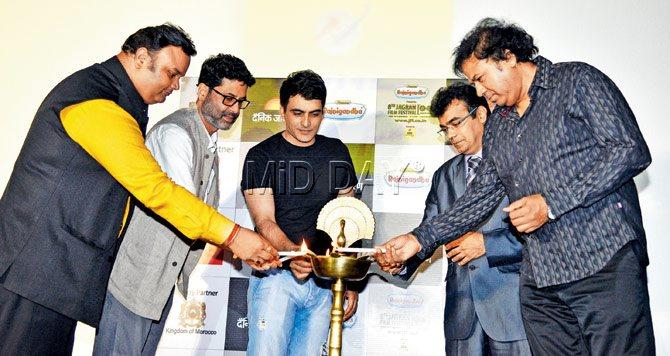The last leg of the eighth edition of the Jagran Film Festival kicked off yesterday at Andheri's Cinepolis amidst much fanfare, marking the first of a seven-day cinematic experience in Mumbai after touring 16 cities over three months


Manav Kaul and Nandita Das in Albert Pinto Ko Gussa Kyun Aata Hai
The last leg of the eighth edition of the Jagran Film Festival kicked off yesterday at Andheri's Cinepolis amidst much fanfare, marking the first of a seven-day cinematic experience in Mumbai after touring 16 cities over three months.
Director Soumitra Ranade's recreation of the 1980 film, Albert Pinto Ko Gussa Kyun Aata Hai, marked the first of 130 films to be screened at the festival. The inauguration was attended by Manoj Srivastava (strategic consultant, Jagran Film Festival), Vinod Srivastava (senior general manager, strategy and brand development, Jagran Prakashan Ltd), Ranade, Albert Pinto Ko Gussa Kyun Aata Hai? lead actor, Manav Kaul and Deep Thakkar (CSA Maharashtra, DS Group).

(L to R) Vinod Shrivastav (senior GM Jagran Prakashan Limited), director Soumitra Ranade, actor Manav Kaul, Deepak Thakkar (CSA, DS group), Manoj Shrivastav (strategic consultant, Jagran Film Festival) Pic/Shadab Khan
Srivastava took to the mic following a lamp lighting ceremony to chronicle the highlights in this year's edition. "2017 marks the centenary year of filmmakers Ramanand Sagar and GV Iyer. We will be screening their films, Arzoo [1965] and Adi Shankaracharya [1983] respectively as a tribute," he stated, further adding that the JFF will also pay tribute to deceased actors Om Puri, Vinod Khanna and Reema Lagoo.
Srivastava stated the fest includes three sections, including 'Indian Showcase' (competitive) to be headed by Sudhir Mishra, 'World Panorama' under filmmaker Rahul Rawail's direction and 'Jagran Shorts' to be helmed by acting coach Barry John. He also spoke about the knowledge series, which would give cinephiles a chance to interact with experienced artistes of the industry.
Ranade's 90-minute remake, a riveting tale of the protagonist attempting to avenge his father's death, put up a gritty depiction of the manner in which the wrongdoings in India irks its citizens. Addressing the audience on why his film failed to end on a positive note, Ranade said, "Where does the good win today?" He added that he did not hope to inspire with his film, "like the movies in the '80s did", but wanted his outing to be a reflection of current times. "I get angry. You can say it is an autobiography."
 Subscribe today by clicking the link and stay updated with the latest news!" Click here!
Subscribe today by clicking the link and stay updated with the latest news!" Click here!









